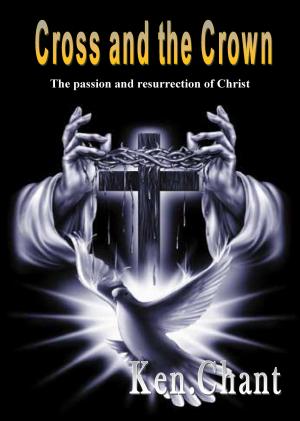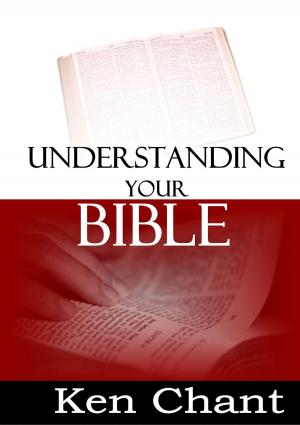Authenticity and Authority of The Bible
Nonfiction, Religion & Spirituality, Bible & Bible Studies, Hermeneutics, Theology, Christianity| Author: | Ken Chant | ISBN: | 9781311904423 |
| Publisher: | Vision Colleges | Publication: | November 3, 2014 |
| Imprint: | Smashwords Edition | Language: | English |
| Author: | Ken Chant |
| ISBN: | 9781311904423 |
| Publisher: | Vision Colleges |
| Publication: | November 3, 2014 |
| Imprint: | Smashwords Edition |
| Language: | English |
Thomas Fuller, an English parson of the 17th century, was probably the first man ever to make a full-time living as a professional author. In one of his numerous books he wrote -
Before the invention of printing, (books) came but singly into the public, which since that mystery is made common, (now) come swimming into the world like shoals of fishes, and one edition spawneth another . . . Indeed, the press, at first a virgin, then a chaste wife, is since turned common, as to prostitute herself to all scurrilous pamphlets . . . Some will say, the charge (of too many books) may most justly be brought against yourself, who have loaded the land with more books than any of your age. To this I confess my fault, and promise amendment, that, God willing, hereafter I will never print book in the English tongue, but what shall tend directly to divinity.
My writings are not so prolific as Fuller's, but a similar complaint against me may be raised: why more books upon such well-travelled subjects? My excuse will be the same as his: there can never be too many books on divinity! Especially is that true of the subject covered in the following pages, which deal with the source of all true religion, the Bible. Our task, however, is not merely to eulogise scripture, but also to test it, for a faith that cannot stand the test of searching examination is not faith but fiction. If our faith is true it will triumph over every trial brought against it by scientist, philosopher, historian, or theologian. But since Christianity is inextricably bound to the Bible, attacks on our faith usually become attacks on the Bible. As Virgil R. Trout has written :
"The basic problem confronting Christianity can be expressed in one word: verification. Is Christianity true? Is Christianity possible?"
But in practice those questions really become, "Is the Bible true? Is the Bible possible?" For if the Bible is proved false, then the fabric of our faith will shred like rags in a garbage disposal. However, the purpose of the following study is not to arm the Bible against its foes. The Bible does not need any defence. As C. H. Spurgeon once said: "Defend the Bible? I should as soon defend a lion. Turn it loose and it will look after itself!" Rather, my purpose is to show why the Bible has been able to withstand every attack made upon it, and why it will continue to triumph. This requires me to establish three things:
the authenticity of the Bible (it is accurate and true in the things it asserts about itself)
the authority of the Bible (it is divinely inspired, and its demands are mandatory)
the reasonableness of the Christian world-view (relating the Bible to science and modern thought).
Those are the questions that occupy the following chapters - although in writing them I feel rather like Sirach, who lamented: "I have had many experiences during my travels, and now I find that I understand things better than I can express them with words!" (34:11) I can only hope that my pen will not fail me, but will fairly write what I know in my spirit, so that you will encounter here, not just cold ideas, but the fiery life of God's wonderful word!
Thomas Fuller, an English parson of the 17th century, was probably the first man ever to make a full-time living as a professional author. In one of his numerous books he wrote -
Before the invention of printing, (books) came but singly into the public, which since that mystery is made common, (now) come swimming into the world like shoals of fishes, and one edition spawneth another . . . Indeed, the press, at first a virgin, then a chaste wife, is since turned common, as to prostitute herself to all scurrilous pamphlets . . . Some will say, the charge (of too many books) may most justly be brought against yourself, who have loaded the land with more books than any of your age. To this I confess my fault, and promise amendment, that, God willing, hereafter I will never print book in the English tongue, but what shall tend directly to divinity.
My writings are not so prolific as Fuller's, but a similar complaint against me may be raised: why more books upon such well-travelled subjects? My excuse will be the same as his: there can never be too many books on divinity! Especially is that true of the subject covered in the following pages, which deal with the source of all true religion, the Bible. Our task, however, is not merely to eulogise scripture, but also to test it, for a faith that cannot stand the test of searching examination is not faith but fiction. If our faith is true it will triumph over every trial brought against it by scientist, philosopher, historian, or theologian. But since Christianity is inextricably bound to the Bible, attacks on our faith usually become attacks on the Bible. As Virgil R. Trout has written :
"The basic problem confronting Christianity can be expressed in one word: verification. Is Christianity true? Is Christianity possible?"
But in practice those questions really become, "Is the Bible true? Is the Bible possible?" For if the Bible is proved false, then the fabric of our faith will shred like rags in a garbage disposal. However, the purpose of the following study is not to arm the Bible against its foes. The Bible does not need any defence. As C. H. Spurgeon once said: "Defend the Bible? I should as soon defend a lion. Turn it loose and it will look after itself!" Rather, my purpose is to show why the Bible has been able to withstand every attack made upon it, and why it will continue to triumph. This requires me to establish three things:
the authenticity of the Bible (it is accurate and true in the things it asserts about itself)
the authority of the Bible (it is divinely inspired, and its demands are mandatory)
the reasonableness of the Christian world-view (relating the Bible to science and modern thought).
Those are the questions that occupy the following chapters - although in writing them I feel rather like Sirach, who lamented: "I have had many experiences during my travels, and now I find that I understand things better than I can express them with words!" (34:11) I can only hope that my pen will not fail me, but will fairly write what I know in my spirit, so that you will encounter here, not just cold ideas, but the fiery life of God's wonderful word!















